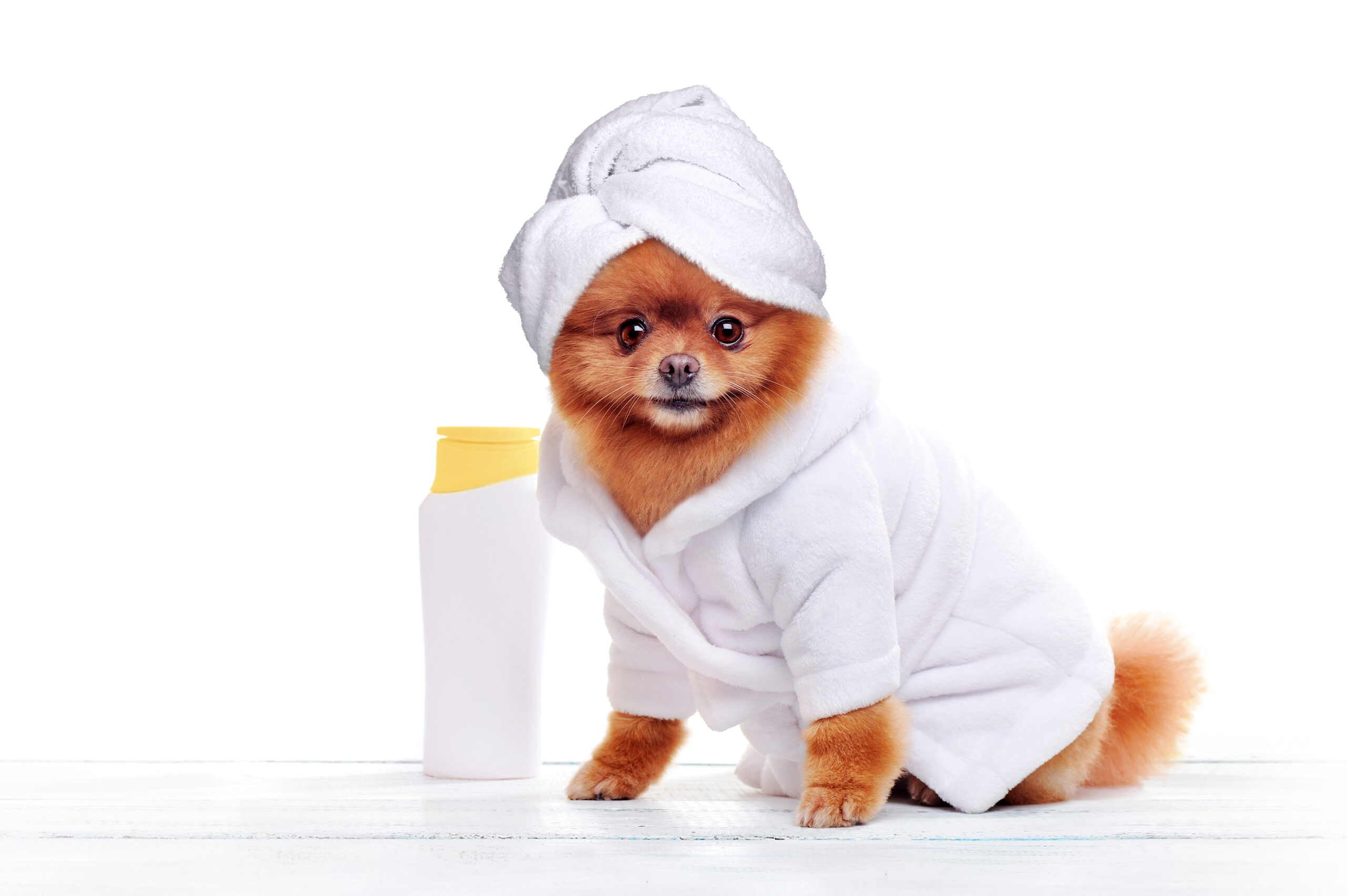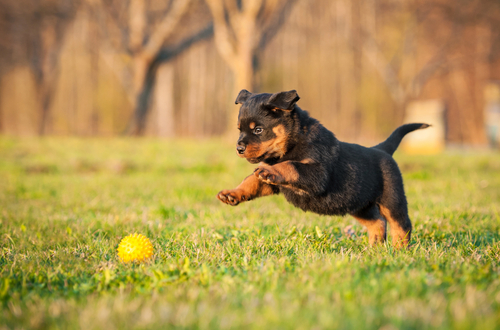A dog isn’t merely a pet. Ask any dog owner, and they’ll tell you their dog is a bonafide family member! Dogs are full of personality, energy, and loyalty. They take their duties to faithfully protect you and your family to heart, even if they’re pint-sized. And just like people, dogs can feel down in the dumps if they don’t get enough love and attention.
In many ways, caring for a dog is right up there on the commitment scale next to choosing your spouse, and we aren’t kidding! The average dog lives a solid 15 to 20 years, while the average American marriage lasts only 8.2!
Man’s best friend, indeed…
A deep companionship between you and your puppy is formed the day you take your new, soft lump of love home, and the last thing you want is to go into the relationship unprepared or, worse, unable to properly care for your furry family member in both the short and long terms.
If you’re thinking about getting a dog, there are 9 things to consider.
THE TIME COMMITMENT
Dogs are far from independent creatures, and puppies can be a real handful. Unlike other pets who enjoy solitude, canines require attention first thing in the morning and quality social time with their owners daily. We’re talking a total of at least two hours each day, which includes meal times, potty walks & play walks—yes, there’s a difference!—and plenty of snuggling in the evenings.
KEEPING YOUR DOG HAPPY WHEN YOU’RE APART
Are you a socialite or a world traveler? Do you frequently leave town for work trips? If so, who will care for your dog during your away time? This is an important aspect to consider as part of your decision to get a puppy because to keep your dog happy, healthy, and cared for, you’ll need to make arrangements ahead of time to ensure all of your dog’s needs are met while you’re away.
But don’t worry, you have options. Hiring a dog walker or even a dog sitter who can stay at your home overnight will do the trick and is an ideal solution compared to using a boarding kennel. That being said, the right boarding kennel could work. Just be sure to research the facility and the company’s reputation beforehand. Alternatively, having a friend or family member stop in on your dog multiple times a day is a way to keep your dog happy while you’re away.
Tip: If you lead a busy life and aren’t home much, you may need to better accommodate your dog’s need for social time and space by hiring a dog walker, bringing your dog to doggy daycare, or asking a trustworthy friend or neighbor, or loved one to stop in to walk, feed, and play with your pup.
DOGS NEED SPACE
No one likes to feel cooped up, and dogs are susceptible to feeling penned in. For this reason, it’s essential to ask yourself, do you have room for a dog, and how much space do dogs need? Depending on the breed and temperament, your dog may need a lot or a little space to feel comfortable inside. Still, even if you live in a small apartment, your playful pup will feel fine as long as there’s quality playtime outside each day during which they can run, jump, and get their energy out.
RAISING A PUPPY & DOG TRAINING
If the burning question at the forefront of your mind is, how much work is raising a puppy? Then you are right over the target! Raising and training your new puppy requires patience and consistency, which could be challenging if you’re also employed full-time, caring for your children or other loved ones, or just plain juggling several balls in the air. The most important aspect to remember here is that the first two or three weeks will be the most intense due to initial housebreaking training as soon as you bring your puppy home.
Getting your new puppy not to go wee-wee in the living room is one matter, but training your puppy to be well-behaved and listen on command is quite another endeavor. Ask yourself, who will train your dog? Can you commit to training your dog, or should you hire a trainer?
FIND THE RIGHT VETERINARIAN
Your dog’s health will directly impact its overall happiness, and there are many healthcare milestones along a puppy’s journey to adulthood and beyond. Within the first year, your puppy will need to receive vaccinations every three weeks until they are about sixteen weeks old and start prevention medications for heartworms, fleas, and ticks. After your puppy matures, it should get spayed or neutered, and beyond that, you can expect to bring your dog to the vet annually for checkups, according to to Fetch by WebMD.
CONSIDER ALL RELATIONSHIPS
We’ve all cherished those movie moments when someone opens a present, and an adorable puppy jumps out. Still, in real life, you want to avoid surprising your family, significant other, or friend with a puppy if doing so will be entirely out of the blue. Bringing a dog into your life and the lives of those around you is a big decision with long-term impacts, so it’s critical to not only consider your family and their potential new relationship with the puppy but to also discuss the possibility of a puppy with them so that everyone understands that having a new dog at home will mean significant changes for everyone.
PUPPY-PROOFING
To elaborate on raising and training a puppy, we want to emphasize the importance of puppy-proofing your home. Puppies are curious by nature and playful at heart. Still, if they get curious about the wrong thing, such as the kitchen trash, they could quickly turn their curiosity about all those exciting garbage smells into a game that ends with your home covered in trash—yikes! Or worse, your new puppy could accidentally get injured by venturing into the wrong room with hazardous materials, for example. Like the precautions parents take with their toddlers at home, you must puppy-proof your house.
Puppy-Proofing Checklist
- Buy garbage receptacles that have locking lids
- Remember to always keep the exterior doors and windows of your home closed and locked when you aren’t around
- Make sure dangerous and sharp objects, including knives, scissors, and tools, are never left out or within your puppy’s reach if you are using the item
- Keep all potential choking hazards like marbles, coins, jewelry, thumbtacks, etc., in closed containers, and be sure that your prescription medications remain in the medicine cabinet
- Make a habit of keeping your toilet lids down, or buy toilet clamps to lock your toilets closed
- Puppies love to chew, so keep all electrical cords either out of reach or use cord concealers
- Resist the urge to sneak table scraps to your puppy since several foods are poisonous to dogs, including chocolate, raisins, and Xylitol, as found in sugarless gum and other sugarless food items
PURCHASING VS. ADOPTING A NEW DOG
If you’ve made it this far, considering everything you need to know before getting your first puppy, then it’s time to decide where you will get your new dog. Should you purchase the dog? Or should you adopt a dog from the local animal shelter? There are many differences between the two options, but the main one is this—you can purchase a puppy, but adopting a puppy from a shelter is virtually impossible. Animal shelters tend to home adult-age dogs and cats who have been dropped off by their prior owners. Rarely will someone bring an unwanted puppy to a shelter. That being said, adoption has pros; the greatest is that you won’t have to housebreak the dog.
MOST IMPORTANTLY, WHY DO YOU WANT A DOG?
The big takeaway is that having a new puppy requires a significant, long-term commitment. The deep bond and long-lasting relationship formed starting the day you get your first puppy can change your life and fill your heart with joy. Please make sure you’re in it for the long haul. Caring for your new dog will take time, money, and a lot of know-how, but along the way, you will experience the daily joys of loving and watching your puppy grow into a mature, charismatic dog.


